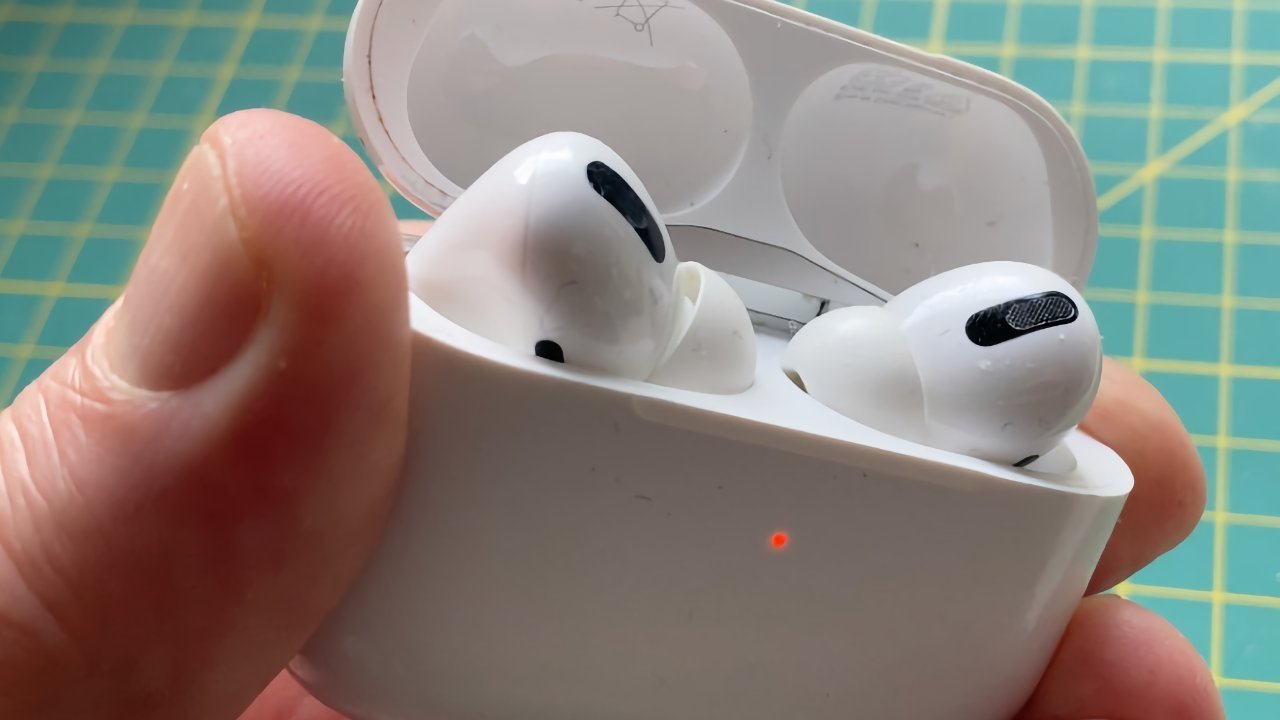New AirPods Pro coming at iPhone 14 Apple Event
Apple will be using its September 7 special event to launch the second generation of AirPods Pro alongside the iPhone 14, a report claims, just days ahead of the event itself.

Apple's special events in September primarily focus on the annual iPhone update, but other products do get launched at around the same time. While AirPods are considered to be a good candidate for a launch during the same event, a report insists that Apple will be bringing out new AirPods Pro this time around.
During the event, AirPods Pro 2 will be unveiled, according to Mark Gurman's "Power On" newsletter for Bloomberg on Sunday. Though rumors were fairly strong about a launch sometime in the fall, Gurman insists it will happen during Wednesday's presentation.
Over the months, rumors for the personal audio accessories have put forward claims of a stemless design, some debate over whether there will be some form of built-in fitness tracking, and case changes. There have been suggestions the charging case could include a form of hearing aid functionality, complete with a microphone and a speaker that could help with Find My recovery.
However, it is also entirely plausible that the new AirPods Pro could more closely resemble the first generation in form and function, with internal hardware improvements including changes to the H1 chip and Bluetooth connectivity a possibility.
What is certainly rumored to stay the same is connectivity for charging, with the case thought to continue with Lightning for the moment, but changing to USB-C in 2023.
Read on AppleInsider

Apple's special events in September primarily focus on the annual iPhone update, but other products do get launched at around the same time. While AirPods are considered to be a good candidate for a launch during the same event, a report insists that Apple will be bringing out new AirPods Pro this time around.
During the event, AirPods Pro 2 will be unveiled, according to Mark Gurman's "Power On" newsletter for Bloomberg on Sunday. Though rumors were fairly strong about a launch sometime in the fall, Gurman insists it will happen during Wednesday's presentation.
Over the months, rumors for the personal audio accessories have put forward claims of a stemless design, some debate over whether there will be some form of built-in fitness tracking, and case changes. There have been suggestions the charging case could include a form of hearing aid functionality, complete with a microphone and a speaker that could help with Find My recovery.
However, it is also entirely plausible that the new AirPods Pro could more closely resemble the first generation in form and function, with internal hardware improvements including changes to the H1 chip and Bluetooth connectivity a possibility.
What is certainly rumored to stay the same is connectivity for charging, with the case thought to continue with Lightning for the moment, but changing to USB-C in 2023.
Read on AppleInsider

Comments
incrementally.
AirPods Pro is such a product.
Apple knows how AirPods and AirPods Pro are being used, most frequently paired with an iPhone. Apple knows it will change over to USB-C, they just need to pick a time to do it. If the iPhone is being charged with a Lightning cable, it makes the most sense to have the AirPods charging case use the same connector since one cable can be used on both.
Undoubtedly prototype iPhones and AirPod charging cases using USB-C have been in their labs for several years. If it comes this fall, it's not like they made the decision to switch ports this summer.
Note that the two connectors -- Lightning and USB-C -- are physically different, not just in size. For Lightning connectors, the exposed male connector is on the cable (inexpensive to replace), the female part of the connector is in the device.
For USB-C connectors, the opposite.
This means that damage/failure of the male connector (more likely) is more expensive to repair in USB-C devices. There may be higher risk of debris (in one both sides, male and female) interfering with proper connection due to smaller physical clearances. It might work great sitting on a workbench in a lab, but real world usage is different, like shoving your phone into lint-filled pocket.
And don't forget there might be additional challenges in developing reliable water resistance in USB-C device ports.
If a currently marketed device has a certain degree of physical resistance, it's not likely that Apple will want to revert to a level that provides less resistance, like going from IP67 to IP65.